Sommaire
Pagination de l'dition papier
Guide
 InterVarsity Press
InterVarsity Press
P.O. Box 1400 | Downers Grove, IL 60515-1426
2022 by David T. Lamb
All rights reserved. No part of this book may be reproduced in any form without written permission from InterVarsity Press.
InterVarsity Press is the publishing division of InterVarsity Christian Fellowship/USA. For more information, visit intervarsity.org.
All Scripture quotations, unless otherwise indicated, are taken from The Holy Bible, New International Version, NIV. Copyright 1973, 1978, 1984, 2011 by Biblica, Inc.TM Used by permission of Zondervan. All rights reserved worldwide. www.zondervan.com. The NIV and New International Version are trademarks registered in the United States Patent and Trademark Office by Biblica, Inc.
While any stories in this book are true, some names and identifying information may have been changed to protect the privacy of individuals.
Author photo by Robert Thompson
Emotional wheel by Robert Plutchik / Wikimedia Commons, public domain
The publisher cannot verify the accuracy or functionality of website URLs used in this book beyond the date of publication.
Cover design and image composite: David Fassett
ISBN 978-1-5140-0011-3 (digital)
ISBN 978-1-5140-0010-6 (print)
This digital document has been produced by Nord Compo.
Dedicated to
the memory of my dad and mom,
Dick and Jane Lamb
Emotions Are Divine
The works of the flesh are... enmity, strife, jealousy, fits of anger... but the fruit of the spirit is love, joy, peace, patience, kindness.
GALATIANS 5:19-20, 22 ESV
WHEN WAS THE FIRST TIME YOU REMEMBER CRYING? For me, I was nine.
I was watching Brians Song. The made-for-TV movie (1971) was based on the true story of two Chicago Bears running backs, Brian Piccolo (James Caan) and Gale Sayers (Billy Dee Williams). Despite obstacles of race and a running back rivalry, their friendship blossomed as they became not just teammates, but the first interracial roommates in the history of the NFL. Piccolo helped Sayers recover from a knee injury, but after Sayers recovery Piccolo began to struggle physically. Eventually Piccolo was diagnosed with terminal cancer.
After Sayers is given The Most Courageous Player award, he declares, I love Brian Piccolo, and Id like all of you to love him too. And tonight, when you hit your knees, please ask God to love him. Piccolo died shortly afterward at age twenty-six. I wept at the tragedy of a life cut short by cancer.
Since ABC rebroadcast the movie every year, I annually repeated this ritual of tears. But I was always embarrassed about getting emotional, so I would turn away from any family members watching with me. If there was a blanket or pillow handy, they were used as barricades to prevent my tears from being seen by my two brothers. Unfortunately, uncontrollable sobbing makes covert weeping difficult.
Why did I attempt to hide my tears? Im not sure, but I know I didnt like the feelings associated with tearsweakness and vulnerability. I dont remember my father expressing much emotion, and I hadnt seen many examples of men crying. Things have changed a little in the past five decades in terms of public expressions of emotions, but in many contexts, emotions are viewed negatively, and this perspective impacts how we view our emotional God.
LOUD CRYING HE MAKES
Away in a Manger is one of the most popular Christmas carols. I may not need to remind you of the words, but I will anyway, just for the second verse.
The cattle are lowing, the baby awakes,
But little Lord Jesus, no crying he makes.
I love thee, Lord Jesus, look down from the sky,
And stay by my cradle til morning is nigh.
Why doesnt baby Jesus cry? The cattle are lowing (mooing), so bovine bellowing seems to have woken him. What do babies do when they are woken up on the middle of the night? They cry... unless, apparently, they are divine. While I dont remember it, Im pretty sure I cried as a baby long before watching Brians Song.
While the biblical text is silent on any possible nocturnal noises that may have been uttered by the little Lord Jesus, the carols lyricist silences him, depriving him of any emotional outburst. It is difficult to determine the reason an infant cries. Hunger may be a factor, but emotions such as fear, anger, or sadness are often a primary causea child often calms down when comforted, even before being fed. If the Gospel writers provide us no hints about the behavior of baby Jesus, why do we sing that he didnt cry? I think it goes back to our view of God. We arent comfortable with an emotional God. Its unsettling.
If people didnt find the portrayal of the stoic swaddled Savior compelling, this carol wouldnt be so popular. Emotions were deemed beneath baby Jesus, not just by the carols lyricist, but by the millions of Christians who love and sing this song every Christmas.
While I believe that, like all human infants throughout history, baby Jesus cried, I dont want to ruin this song for people. My goal isnt to stop carolers from singing it, but merely to question what it implies about emotions and appropriate divine behavior. As well see throughout this book, the God of the Bible often expressed emotions. Big Lord Jesus cried on at least two occasions (Lk 19:41; Jn 11:35), and, according to Hebrews, he was even known for weeping (Heb 5:7). As a man who cries regularly (twice publicly in the past two weeksin the Covid spring of 2020), I find great comfort in the image of a Savior who weeps, as an infant or as an adult. We are called, after all, to follow Jesus (Mk 1:17; 2:14; 8:34). Sometimes this will involve weeping.
Our God is an awesome God, and part of his awesomeness is his emotional-ness. Emotions are divine. Just as we have needed to update the archaic language of many classic hymns, this carol is due for a slight revision.
The cattle are lowing, the baby awakes,
So little Lord Jesus, loud crying he makes.
Thats better. Hes little but makes a loud noiselungs worthy of a future preacher.
The negative perspective on divine emotion of this carol is tragically not unique. If it were, we could dismiss it as an anomaly. But many Christians, including biblical scholars, theologians, and pastors, ignore the many passages in Scripture where God is described as displaying certain emotions. Emotions are divine, but we have an irrational fear of an emotional God.
WHY DONT WE WANT TO ASSOCIATE EMOTIONS WITH GOD?
When it comes to God and emotions, we have two problems. First, certain emotions are commonly viewed negatively, such as hate, anger, and jealousy, which are particularly problematic to associate with Godand yet the Bible frequently does just that. These negative emotions dont fit with how we think God should act. There is a tension between the textual portrayal of God and what we know to be true of God. How are we to understand a God who hates, gets angry, and is jealous?
Second, emotions are often perceived to be irrational, uncontrollable, and confusing. We dont want to associate them with God (no crying he makes). We feel more comfortable with a God who is rational, predicable, and comprehensible, so biblical texts that describe God with human emotions are often discounted. We do this to protect Gods honor, but since the God we find in the Bible is in fact highly emotional, our de-emphasizing his divine emotions doesnt honor himit distorts his character. As we will see from the psalms and elsewhere, the emotional side of God is not to be hidden but praised.

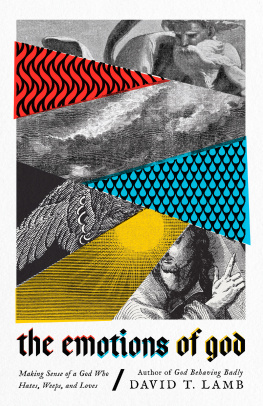

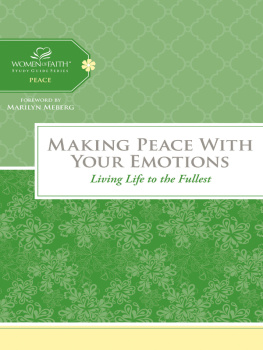

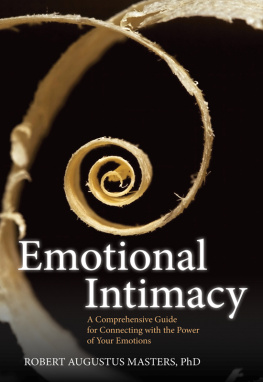
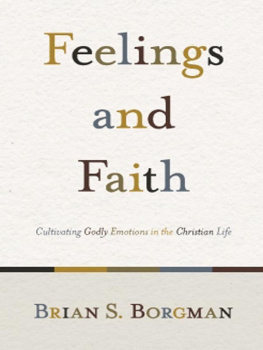
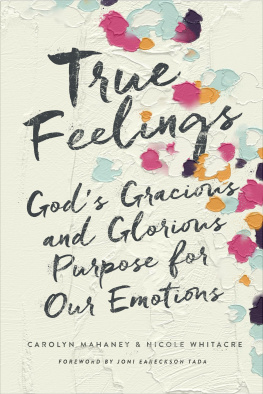
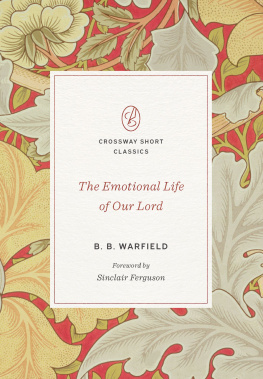
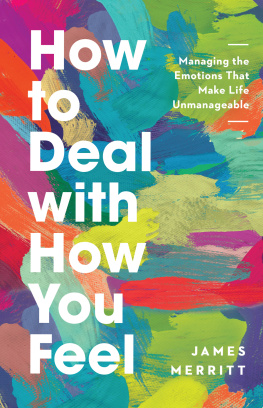
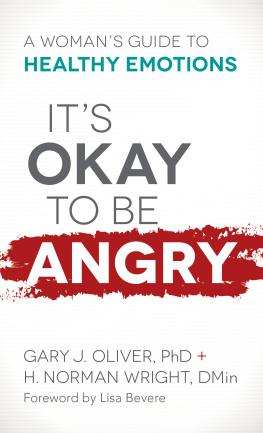
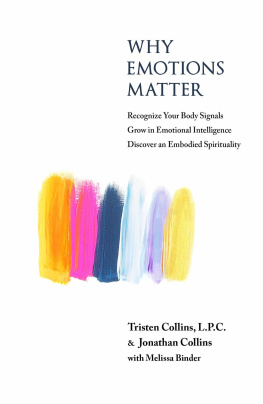
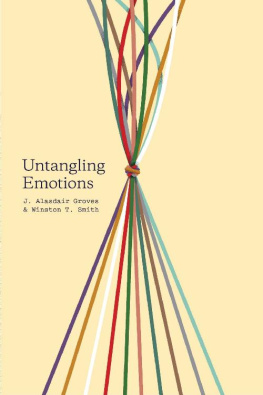
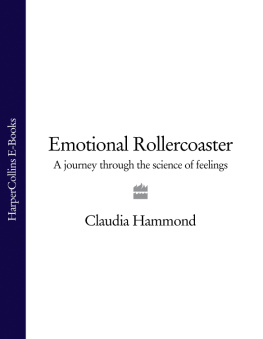
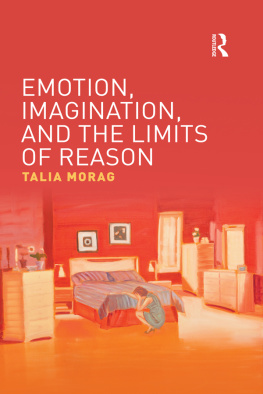
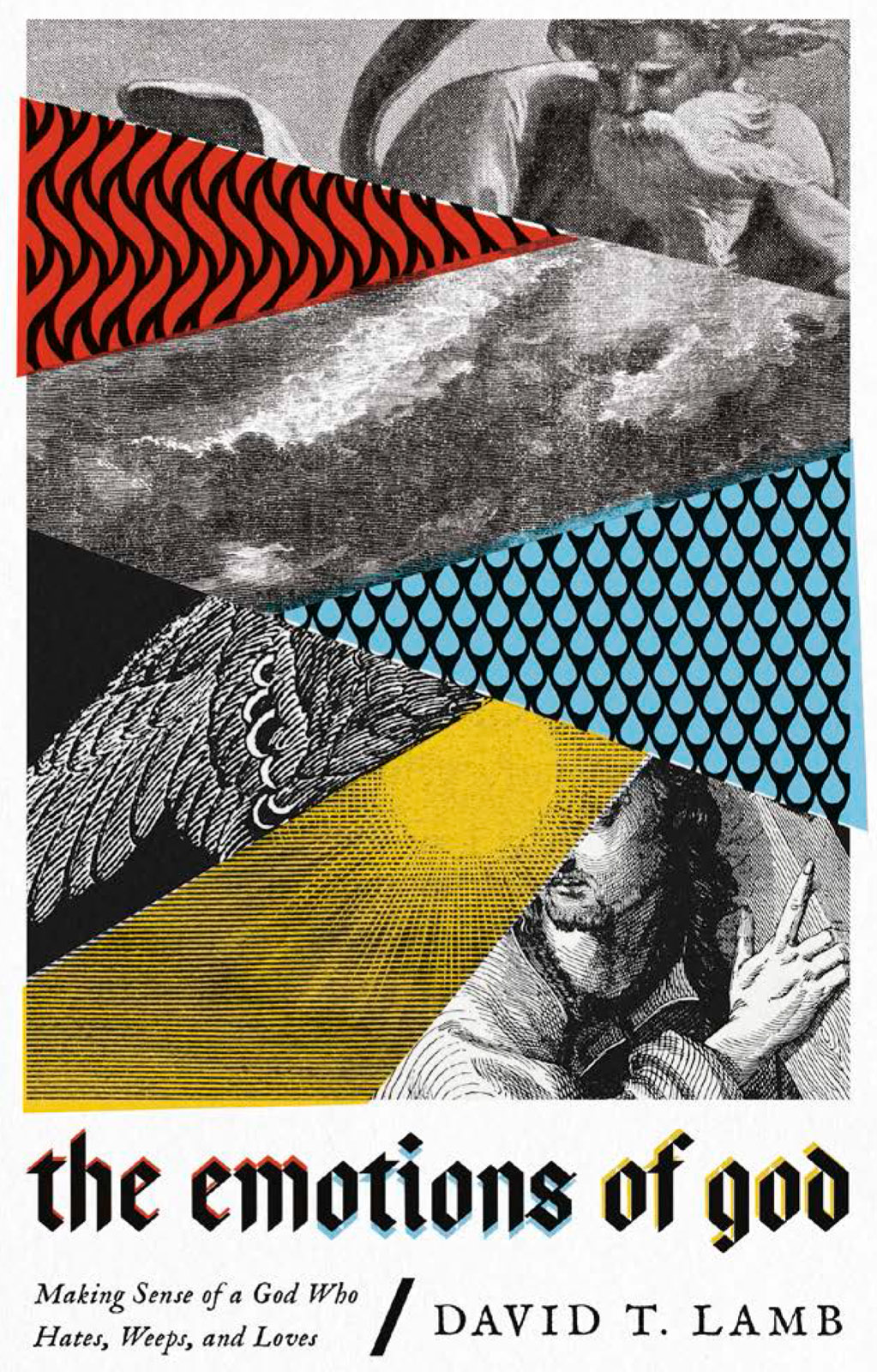

 InterVarsity Press
InterVarsity Press